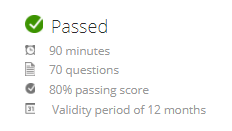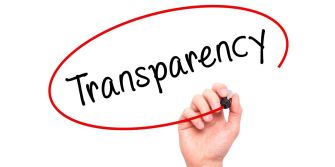
I know sometimes we become so confident with a piece of work that we are certain there is no way that there can be anything wrong with it… not one spelling error, grammatical error, awkward image, poor color choice, ect.
This is the brutal truth to the people who think that (and myself because I have been guilty of thinking this way at some point too: There is always an error, whether you see it or not.
The good news is is that it can be the smallest of errors, such as misusing a comma or forgetting to put a space between two words. The point is, most times the errors within your work are small, sometimes they are bigger, such as structuring problems, but why let your work contain any type of error when you don’t have to?
No matter how short or long what you write is, or no matter how simple or elaborate the infographic is you create, you should always ask your peers to peer review it! Most of the time they will agree to do it, because they want you and the company to be successful. In the instances that you ask someone and they act like they don’t have enough time to help you or don’t seem to want to, then they probably aren’t someone you want to peer review your work anyways because they won’t provide the best feedback or don’t really care about your success.
For those that are nervous to have someone peer review your work, don’t be. This is something you will have to get over at some point in order to be successful and accept criticism. Whether you are nervous about handing your work over to someone to be reviewed, or at times unsure what sort of feedback you should be giving, this is a great resource to answer all peer review questions!
Peer reviewing works as a two way street. If you want your work peer review, you’re going to have to peer review the work of others too. I know for myself, after I had moved up into higher level classes in college, I had became part of a group that worked as a peer review team. We’re were all up into the late hours of the night doing homework, and we all want to get the best grade on our assignments, so we weren’t afraid to send a message to each other at one in the morning asking if someone had time to look it over for us because we all hoped someone would do the same for us. I’m sure within each company you find a clique of some sorts that are willing to help each other out that become your work friends.
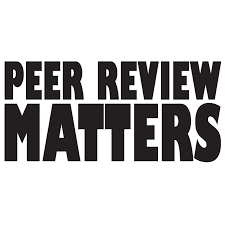
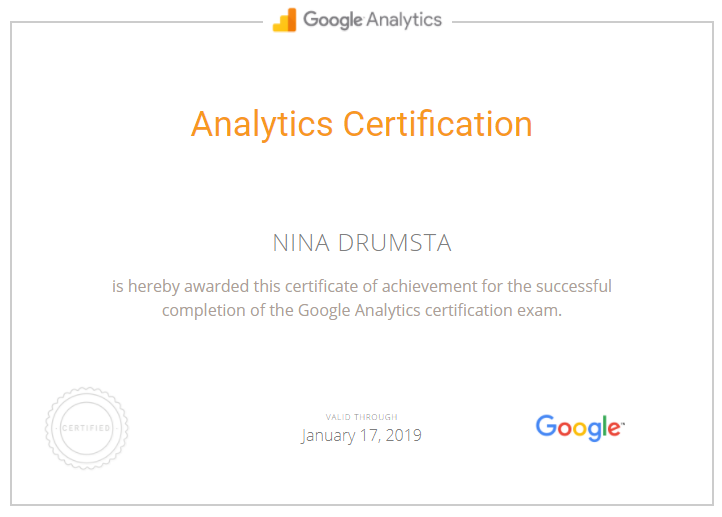
 with a 92 percent. How did this 48 percent increase happen with just one retake? Surprisingly it happened quite easily.
with a 92 percent. How did this 48 percent increase happen with just one retake? Surprisingly it happened quite easily.


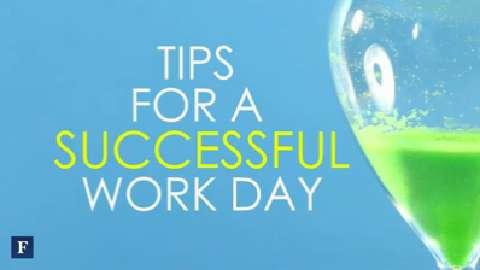
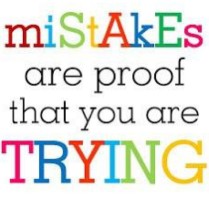
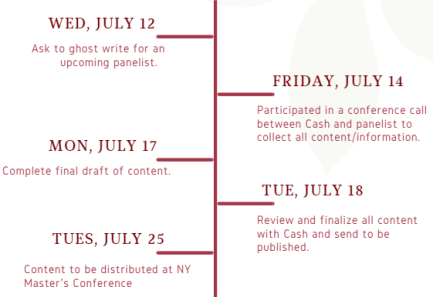 I have previously done some ghostwriting for a non-profit I was paired with through a public relations course titled The Agency last semester, but this time around I have been a much more nervous. The timeline of completing this task was rather quick, at least quicker than any other task I have had so far as an intern anywhere. To the left is the actual timeline of my ghost writing adventure from start to finish.
I have previously done some ghostwriting for a non-profit I was paired with through a public relations course titled The Agency last semester, but this time around I have been a much more nervous. The timeline of completing this task was rather quick, at least quicker than any other task I have had so far as an intern anywhere. To the left is the actual timeline of my ghost writing adventure from start to finish.